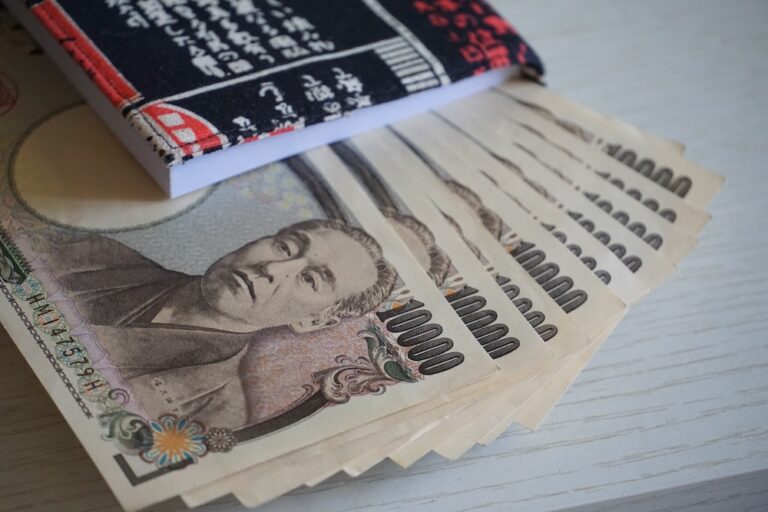
Recently, the yen weakened to a staggering 32-year low against the US dollar, trading at 147 yen to the dollar on October 13th. For people looking to travel to Japan, this is probably delightful news. The whole country is on sale! But for those living in Japan and earning in yen, it’s certainly a worry. The Japanese term for the weakening yen is 円安e and has become quite the hot topic in recent years.
What has caused this situation?
Essentially, the fall of the yen has been caused by a difference in economic policy between the US and Japan. In March of last year, the US Federal Reserve raised its main interest rate from 0.25% to a staggering 3.25%. Since then, it’s risen again to over 5%. This move was orchestrated because the US economy was running a little too hot – inflation was out of this world – and increased interest rates deter activities such as taking out loans. Think of it as Uncle Sam slamming his foot on the brake.
However, fly 5000 miles West of mainland US and you’ll find a place that’s been doing almost the opposite. The Bank of Japan has adopted a rather unique policy of keeping its interest rates low, and sometimes even negative, since around 2016. Keeping interest rates low should – and I’ll emphasize should – encourage economically stimulating activities including taking out loans to start businesses and borrowing money for mortgages. Unfortunately, the sluggish Japanese economy hasn’t really kicked into gear yet.
But today we’re talking about the value of the yen. So, what do interest rates have to do with the value of currencies? In a nutshell, foreign investment is more likely in America than in Japan because there’s a higher return on investment. As people invest more, the demand for that currency increases and boom, the value soars. And that, my reader friends, is a brief overview of how the Japanese yen has fallen to a 32-year low against the US dollar.
This situation has also happened with countless other western countries, so the yen has decreased in value against a huge range of currencies.
Foreign Residents in Japan
I think I speak for all foreign residents when I say that the 円安 situation is a tough one to navigate. For many of us who earn in yen, the bulk of our savings are also in yen, so we’ve lost a lot of buying power abroad. For those who intend to stay forever, this isn’t a problem. But, for those of us looking to move back home eventually – or any other country – this is devastating. The yen has lost around 32% of its value against the British pound since I came in 2019. So, when I go home to the ever-inflating economy of England, I don’t think it’s an exaggeration to say I’m slightly miffed. Of course, this line of thinking only applies to people who intend to leave Japan someday.
Selling Power
International trade makes up about 16% of Japanese GDP. Naturally, when the yen weakens the selling power of Japanese goods increases.

Exports have been up since the low-interest policy Japan has adopted. Whilst Japanese people struggle to buy foreign goods, other nationalities are licking their lips at the discount. For example, since 2016 there’s been a steady increase in passenger car exports – apart from an obvious drop when the pandemic happened – which culminated in 2023 exports breaking records for Japan. That’s of course a great thing for anyone involved in the automotive industry.
Foreign tourists are also loving Japan right now. If you are able to afford the admittedly high prices for flights, you’re treated to a country on discount right now. With the tourists comes their lovely foreign money, which can flood its way into the Japanese economy.
Buying Power
However, with selling power increasing comes buying power decreasing. The delicate balance of these two influences is the true answer to whether the weakening yen is actually a good thing or not.
It’s not just foreign residents who feel the effects of losing selling power on the international stage. Japan is an island nation that isn’t particularly rich in any resource. The only thing it’s 99% self-sufficient in is rice. I suppose for a lot of Japanese this might be viewed as enough to live though. But let’s take a commodity like oil. Japan has no noticeable reserves of any fossil fuel, so it has to bring it all in from abroad. When a major oil exporter cuts the world off because they’re involved in an illegal war – looking at you Russia – it’s only natural the price soars.
This price increase coupled with the devalued yen has led to inflation of over 3% in Japan, after years and years of practically zero inflation. This forced inflation isn’t the good kind you want that comes with increasing wages and other lovely economically stimulating things. This is the bad kind caused by outside influences that is hitting Japanese families daily as their wages stay fairly static.
Looking Forward
For those of you looking to come to Japan to live I wouldn’t let the yen situation change your decision. Of course, there’s a reality to losing buying power in your own country, but the cost of living in Japan can be incredibly cheap.. If anything, there might be more jobs in certain industries as exports increase. The truth of this whole situation is that no-one knows what will happen in the future.
A Last Word
I would absolutely say that right now is a fantastic time to come to Japan as a tourist. Feast on wagyu every night, buy all the 可愛いkawaii cute souvenirs you want, spend your life savings on conveyor belt sushi. But I might think twice about moving here if you’re looking to make bank in Asia. Japan doesn’t seem to be the country to be in if you’re looking to line your pockets before settling down in your own country anymore.















